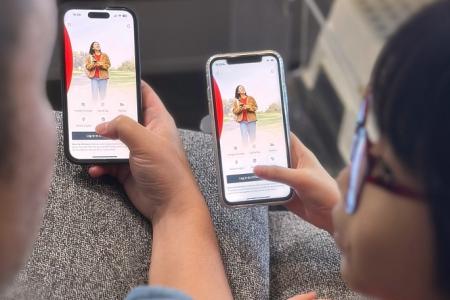Kids as young as 7 can operate own bank accounts with OCBC
Children as young as seven years old can have their own bank accounts that are separate from those of their parents, under a new initiative by OCBC Bank.
The minimum age to open most bank accounts in Singapore is 16. For many teenagers and older children under that age, bank accounts are held jointly with their parents, with digital banking access given only to parents.
The OCBC MyOwn Account will allow those aged between seven and 15 to operate their own bank accounts digitally via the OCBC Digital app, within controls set by their parents, and have their own debit card. The account, available from Oct 20, will be registered solely under the child’s name but must be opened by parents via their OCBC Digital app.
Parents can download the OCBC Digital app to a separate smartphone, and their child can create his own username and password to access his bank account digitally.
Parents can use their own app to monitor their child’s account activities, including fund transfers, payments, ATM deposits or withdrawals, and debit card usage. These details will be displayed in their app, on a separate dashboard showing their child’s account details, said OCBC on Sept 3.
OCBC expects that the account will improve access to digital banking, especially for teenagers who tend to have smart devices. “This is especially important as some merchants are going cashless, and essential services like transportation and delivery apps are more conveniently paid through digital means.”
Besides using their debit cards, young customers will be able to scan merchant QR codes to pay or use PayNow via the OCBC Digital app. A dashboard on their app will also allow them to monitor their expenses and account balances.
Certain account controls are only accessible via the parent’s OCBC Digital app and will be progressively rolled out for parents. These include setting transaction limits on the account and debit card, updating their child’s contact details, and receiving notifications on all their child’s account activities.
For children who are younger and might not have their own devices, the bank expects OCBC MyOwn Account to be useful in teaching them about savings rather than payments.
Parents can use their own app, for example, to show the child how his or her account balance is growing, said the bank.
The launch of the OCBC MyOwn Account follows 18 months of extensive research, it added. Feedback from parents of teenagers and older children showed that they want to give their children an early start to digital banking basics and financial independence while being able to supervise the child’s financial behaviour.
The number of teens who opened their own individual OCBC bank account when they turned 16 has grown by almost 25 per cent year on year since 2022.
Mr Sunny Quek, OCBC’s head of global consumer financial services, said Gen Alpha – those born after 2009 – has never known a world without digital technology.
“But digital banking may be the one area they are not familiar with yet... Now that (children) can check their app and see how spending affects their account balance, they will better understand the value of money. This financial independence is counterbalanced by supervisory oversight from parents.”
A special financial literacy programme created specifically for this generation will be rolled out with the launch of the OCBC MyOwn Account. Its content will be delivered through comic strips on the child’s or teen’s OCBC Digital app, and cover topics like budgeting, tracking of expenses, and how to guard against scams.
OCBC joins other companies like Revolut in their efforts to cater to young customers. In April, the fintech firm said that its
The app allows those aged six to 17 to track their spending and set aside money towards specific goals, among other features.
The total number of Revolut
Meanwhile, the POSB Smart Buddy programme allows students and their parents to track spending and saving patterns via an app. Students can set savings goals, while parents manage daily allowances and monitor real-time purchases.
A DBS Bank spokesperson said more than 192,000 students can use POSB Smart Buddy cards and smartwatches to pay at school vendors and over 10,000 Nets merchants islandwide, including 7-Eleven and Popular bookshops.
Get The New Paper on your phone with the free TNP app. Download from the Apple App Store or Google Play Store now


